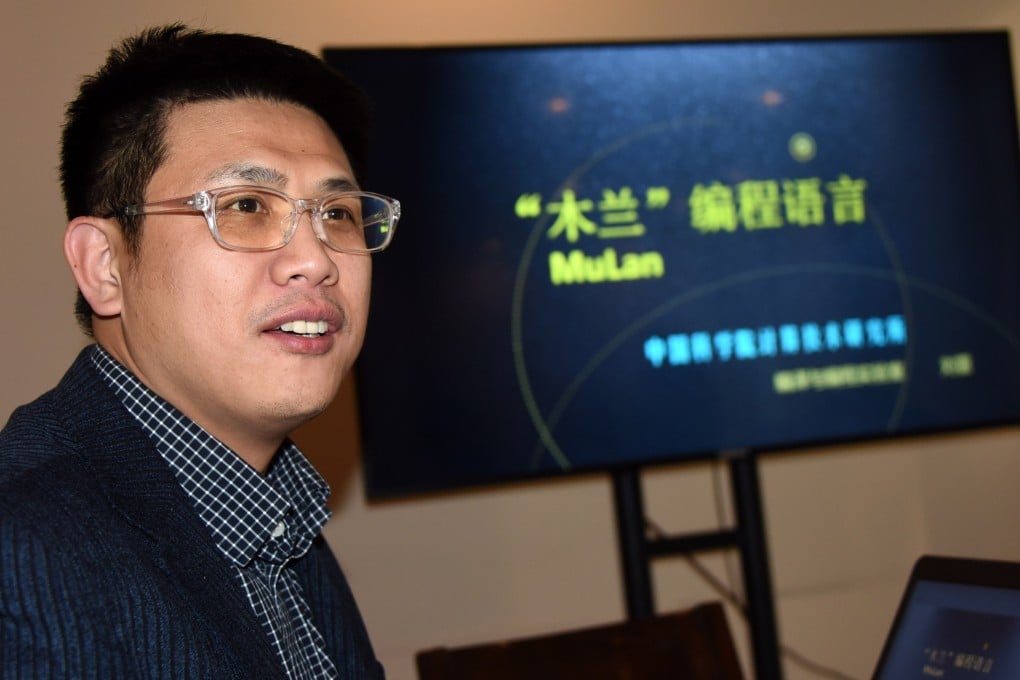China in new tech embarrassment as coding guru suspended for fake claims
- Liu Lei faces an investigation after the Mulan programming language he said was entirely built by his lab was found to be partly based on an existing one
- It is the latest such case amid a push to develop home-grown technology

China faces another embarrassment in its drive to build home-grown technology after one of the country’s leading research institutes suspended a senior computer scientist for making false claims.
China imports billions of dollars in computer chips and software from the West and has made it a national goal to reduce that dependence by investing huge amounts in developing China-made products.
However, the prospect of such funding has led to a number of claims, such as China-developed microprocessors and internet browsers, that turned out to be fake.

Now, the prestigious Institute of Computing Technology, Chinese Academy of Sciences in Beijing says it has suspended lab scientist Liu Lei and that he faces an investigation.
Liu is the lead developer of a computer programming language known as Mulan, which he had claimed was entirely built in China.